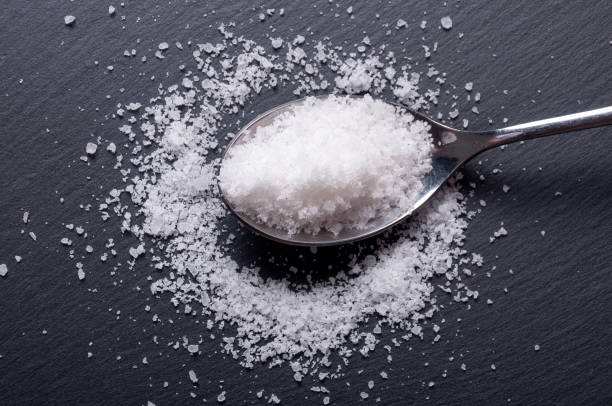The salt debate has been around for a long, long time. Table Salt versus Sea Salt, versus Kosher Salt, versus every salt available to human kind. Most people are familiar with classic table salt. It’s fine, quick dissolving texture is used on foods, such as French Fries, or in soups, and many recipes alike. Salt also enhances sweet flavors, and makes a pretty incredible addition to food, when consumed in moderation. It also keeps a balance among other food components, such as acids and fats in cooking.
Salt has an important role in our diets, so it’s just as important to choose the right one for the right food. Kosher Salt and Sea Salt have a grainier consistency than table salt. However, they are still different from one another.
Kosher Salt
Kosher Salt is not exactly “kosher,” per se. Any salt can be called kosher if it is processed under the kosher compliance guidelines. Kosher salt actually does not have anything to do with the dietary guidelines that make a food “kosher.” It does have an interesting history that gives the name kosher to this specific salt. As the story goes, in the Jewish kosher tradition, all blood is to be removed from meat after a slaughter to make it ready to be consumed. Given it being coarse in nature, this salt was used to remove the blood from animal meat. In doing so, it became known as Kosher Salt, because it was, and still is, used to kosher the meat.
Sea Salt
Sea Salt, of course, comes from the sea. All salt crystals are created by gathering salt from rock-salt deposits in salt mines, or from seawater. Pumping water into salt mines, or the evaporating salty water into salt crystals is the root of salt production. Both of these techniques will result in salt once the water is entirely evaporated.
Evaporation can be a very timely process, so seawater is boiled and filtered to remove any impurities that may exist. Then it is heated again to hasten the evaporation process until the salt forms crystals. Ultimately timing and temperature have equally critical roles in the end result of any salt that is consumed.
There is no real chemical difference between salt types. They are all completely comprised of sodium chloride. However, what makes various types of salt different from one to the next remains exclusively in their processing method. Sea salt is created by evaporating sea water. Kosher salt is created from salt rock deposits in salt mines. Each method creates salt crystals shifting in size and coarseness, with sea salt being more finely granulated, and kosher salt having larger, more coarse granules.
Choosing Which Salt To Use
In retrospect, all salt is “sea salt,” because it all comes from the sea. No matter what kind of salt you may prefer on your popcorn, French fries or meat, the type to use or consume really comes down to a matter of personal preference. Most commonly used is finely granulated table salt or sea salt for meals, cooking and baking. Sea salt does tend to be on the pricey side.
However, those who work in the culinary profession, such as a cook or chef, tend to prefer kosher salt for its “pinch ability.” When a recipe calls for a pinch of salt, the larger, coarser granules of kosher salt have that pinch ability, where table or sea salt are less coarse, much finer, and fall apart in a pinch. Whichever salt you choose, remember less is more, especially with salts that are less finely granulated.
At Broadway Basketeers, we take kosher to the next level! We have a selection of gift baskets that are 100% Certified Kosher to choose from. All of our Kosher Gift Baskets are beautifully constructed, and filled with a variety of delectable baked gourmet treats. Choose from gourmet popcorn, candies, brownies, cookies, hot cocoa, wine and a variety of other gourmet snacks. Whether your preference is for a taste of sweet, salty, or a combination of both, you’ll be sure to find that perfectly delicious kosher gift basket you’re looking for!




















